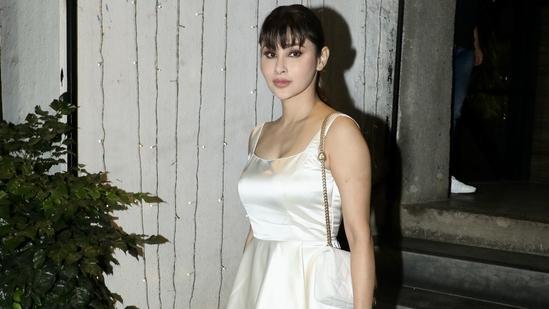
Get a Life: Mouni Roy on her Deepfake AI Video
In the age of social media, privacy and anonymity have become luxuries of the past. With the rise of deepfake technology, celebrities are now more vulnerable than ever to cyberbullying and online harassment. The latest victim of this trend is none other than Bollywood actress Mouni Roy, who recently expressed her disgust over deepfake images and videos of herself on social media.
In an exclusive interview with a leading news outlet, Mouni Roy spoke about her experience with deepfakes, calling it “disgusting” and “nasty”. She revealed that she stumbled upon altered videos and images of herself online, which had been manipulated to make her appear in compromising positions or with distorted features. One such video, which went viral on the internet, showed her with “botched botox”, inviting a plethora of troll comments.
“I saw my face distorted over other people’s bodies, it was disgusting,” Mouni Roy said, her voice laced with disgust. “That section of the internet has become a nasty place…just get a life.” Her words are a stark reminder of the need for online etiquette and respect for celebrities’ privacy.
Deepfakes, for the uninitiated, are AI-generated videos or images that manipulate a person’s likeness, often to create fake or misleading content. While the technology has the potential to revolutionize industries such as entertainment and healthcare, its misuse has given rise to a new wave of cyberbullying and online harassment.
Mouni Roy’s experience is not an isolated incident. Several other celebrities, including actresses like Emma Watson and Gal Gadot, have also fallen prey to deepfakes. The ease with which these fake videos and images can be created has made it a favorite tool for trolls and cyberbullies.
In recent years, the Indian entertainment industry has seen a surge in the use of deepfakes. From manipulated videos of Bollywood stars to fake news stories, the threat posed by deepfakes is real and growing. It’s not just celebrities who are affected, but also everyday people who can become victims of online harassment and bullying.
So, what can be done to combat this issue? For starters, social media platforms need to take a more proactive approach towards tackling deepfakes. This can include implementing stricter moderation policies, flagging suspicious content, and taking down fake videos and images as soon as they are reported.
Celebrities like Mouni Roy also need to take steps to protect themselves from deepfakes. This can include being more cautious about what they share online and limiting their digital footprint. At the same time, they should also speak out against cyberbullying and online harassment, using their platform to raise awareness about the issue.
Ultimately, it’s up to all of us to create a safer and more respectful online environment. By being more mindful of our actions and words online, we can help to reduce the spread of deepfakes and cyberbullying. As Mouni Roy so aptly put it, “just get a life”. Let’s make the internet a better place, one step at a time.






